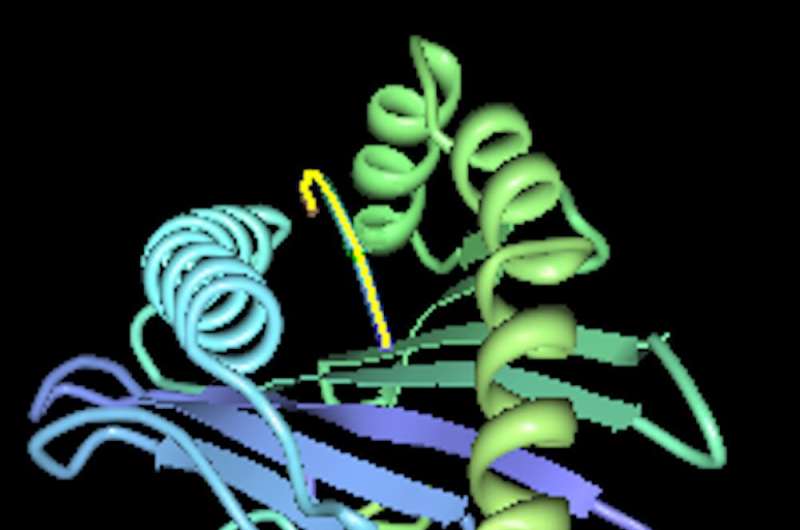This article has been reviewed according to Science X's editorial process and policies. Editors have highlighted the following attributes while ensuring the content's credibility:
fact-checked
peer-reviewed publication
trusted source
written by researcher(s)
proofread
Asymptomatic COVID-19 linked to gene variant that boosts immune memory after exposure to prior seasonal cold viruses

A common genetic variant explains why some people are asymptomatic after being infected with the virus that causes COVID-19, according to our recently published study in the journal Nature.
Early in the pandemic, we were intrigued that many people did not develop COVID-19 symptoms while still testing positive for it. Because asymptomatic people are unlikely to seek medical help, we knew that collecting DNA samples to study the role of genetics in asymptomatic infections would be difficult. So instead, we took advantage of existing genetic data stored in the Be The Match U.S. bone marrow donor registry.
We invited volunteers registered as donors to track their experience with COVID-19 via a smartphone app developed by the COVID-19 Citizen Science Study. This allowed us to analyze the genetics of nearly 30,000 people without collecting biological samples and to identify COVID-19 positive individuals who never became sick.
We were particularly interested in analyzing the variation of human leukocyte antigen, or HLA, genes. These key components of the immune system encode for proteins that display the viral particles that T cells—a group of immune system cells critical for fighting infections—recognize. Because HLA molecules are important in the immune response to pathogens and are highly variable among people, we thought they might play a role in COVID-19.
We found that 1,428 unvaccinated individuals reported a positive COVID-19 test, of whom 136 reported no COVID-19 symptoms. Our analysis identified a common variant of an HLA gene called HLA-B*15:01 that is associated with asymptomatic infection. This variant is present in about 10% of the population with European ancestry.
We found that people carrying the variant were more than twice as likely to remain asymptomatic after being infected with COVID-19, and those carrying two copies of this variant were more than eight times more likely to not have any symptoms.
Next, we used cells from people with the HLA variant who donated blood several years before the pandemic to see whether they had preexisting immunity to the virus that causes COVID-19. We found that people who had never been exposed to COVID-19 had memory T cells that worked against a specific particle of the virus, enabling them to elicit a very effective immune response against COVID-19. We also found that, when bound to HLA, this viral particle looks very similar to fragments of seasonal coronaviruses recognized by T cells.
Our findings suggest that preexposure to seasonal cold viruses allowed people with HLA-B*15:01 to develop a very effective immune memory that helped them to quickly kill the virus before they developed symptoms.
Identifying the genetic factors associated with how the disease progresses after infection provides the basis for understanding why people respond differently to the virus that causes COVID-19 as well as other viral illnesses. Focusing on asymptomatic infections also sheds light on the early stages of infection and how the immune system fights against COVID-19.
Most existing vaccines protect against severe COVID-19 symptoms. Therefore, identifying the viral fragments that mediate asymptomatic infection, such as the one we discovered, can help develop more specific vaccines or therapies for COVID-19.
Although the genetic association we identified is strong, the immune system is very complex. It remains unclear what other mechanisms regulate asymptomatic infections, or why not everyone carrying this specific variant remains without symptoms.
We want to know if the genetic variant we identified is shared by individuals from different ancestries. This will help us understand which genetic variants are important among those in these groups with asymptomatic COVID-19. We also hope to learn what makes the cross-reactive T cells in people with HLA-B*15:01 so remarkably effective at keeping the symptoms associated with this virus at bay.
More information: Danillo G. Augusto et al, A common allele of HLA is associated with asymptomatic SARS-CoV-2 infection, Nature (2023). DOI: 10.1038/s41586-023-06331-x
This article is republished from The Conversation under a Creative Commons license. Read the original article.![]()




















